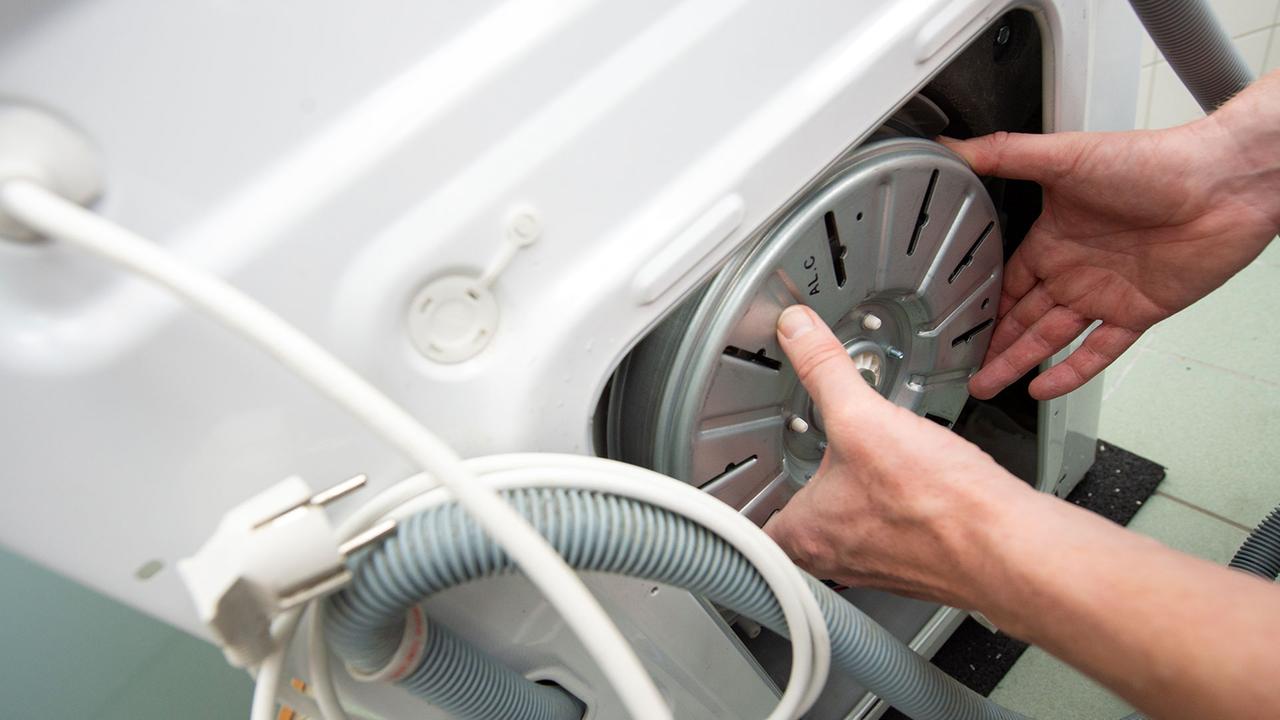Repair more, throw away less – if the European Union has its way, fewer electrical devices will end up in the trash in the future. This will protect the climate and consumers.
“What What kind of problems is the machine causing?” asks Phillip Jung of his customer. The electrician runs a specialist company near Mainz that specializes in the sustainable repair of electronic household appliances. Evelyn Ehgartner points to the seven-year-old washing machine in her basement. “I wanted to start it up,” she explains, “but the power switch tripped.”
Jung now begins to search for the fault. The fuse keeps blowing. The specialist suspects that the heating element could be defective, so the repair should be routine. There are always surprises in his job, but in this case it is actually the heating element. Jung replaces it: “At that moment, I'm just happy that I was the one who was able to give the device a new lease of life.”
The repair will probably mean that the washing machine can be used for years to come. This will also pay off financially for the customer. The electrician charges 131 euros for travel, working time and materials. “The washing machine cost around 700 euros,” says Ehgartner, so she is satisfied.
Saving almost 20 million tons of CO2
Old computers, vacuum cleaners, dishwashers or refrigerators – according to the Federal Environment Agency, 853,000 tons of electrical appliances were disposed of in Germany in 2018 alone. In order to reduce unnecessary electronic waste, the EU introduced a right to repair in April. The directive stipulates that manufacturers must offer repairs beyond the statutory warranty period. Spare parts should also be available and affordable for longer.
This should bring benefits for consumers and for the environment. According to calculations by the EU Commission, customers could be relieved of 176.5 billion euros in the next 15 years. In addition, 18.5 million tons of CO2 could be saved.
“Awareness is promoted”
Phillip Jung's repair service welcomes the EU legislation. Forty years ago, Jung's father founded the specialist company “Blitzblume” and has been promoting the idea of repair ever since. “The regulations that have been passed are a start,” says Heinrich Jung.
“Such activities at EU level will greatly increase public awareness,” says Heinrich Jung. Father and son expect the federal government to implement the EU rules into German law as quickly as possible; the EU member states have two years to do so.
Extend rules to small devices
The new EU regulation will apply primarily to large appliances, but not to hairdryers, mixers or coffee machines. Heinrich Jung and his colleagues from the “Round Table Repair” association, in which he is involved, are demanding that the right to repair should gradually be introduced for all appliances.
Especially with small electrical appliances, repairs are often unnecessarily complicated because spare parts are sold at excessive prices or are not available at all. Jung points to an iron in his workshop: “It is very questionable anyway why cables can break so quickly. But if it breaks, then I need the main spare part and unfortunately this has a very special connection socket.”
Repair bonus from the state
Consumer advocates are also calling for the right to repair to be extended to more product groups. The EU rules are a good template, now it needs to be implemented well in Germany. Above all, repairs must be affordable, stresses Ruth Preywisch from the Rhineland-Palatinate Consumer Advice Center. A repair bonus, such as that in the federal states of Saxony and Thuringia, is exemplary in this respect. There, the repair of defective household electrical appliances is subsidized.
“People who have a device repaired can submit an application afterwards and then receive a subsidy for their repair,” says Preywisch. However, this has so far only been the case in these two federal states in Germany. Consumer advocates and the “Round Table Repair Association” are calling for such financial incentives for repairs nationwide and as quickly as possible.
According to a spokesperson for the Federal Ministry for the Environment and Consumer Protection, the federal government is aiming to implement the directive in the current legislative period. If the plans work out, the right to repair should contribute to improved climate and consumer protection. In addition, the new regulations should bring additional orders to repair shops like Phillip Jung's.





